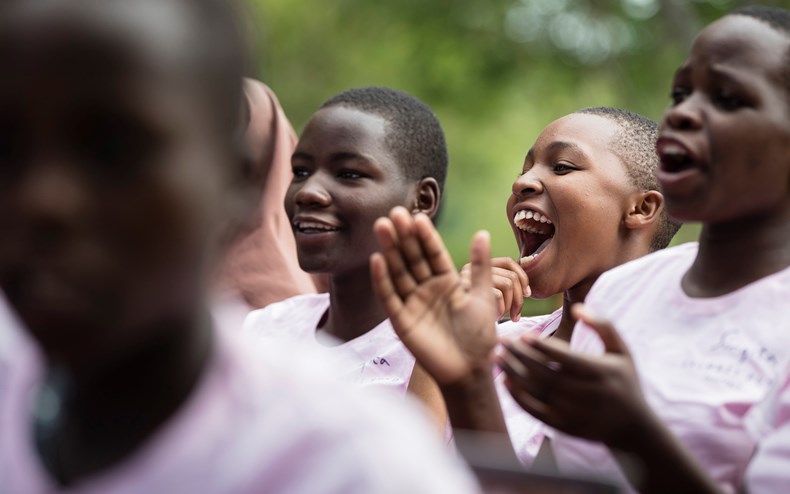Serengeti Girl's Run

At the end of last month, Singita Grumeti was delighted to host the 2020 Serengeti Girls Run. Despite the challenges wrought by this year, its impact on the women and girls of rural Tanzania is important now more than ever and it was a delight that the event could go ahead as planned.
This all-women, multi-stage run forms part of Singita’s signature collection of conservation safaris and is held in partnership with the Grumeti Fund to support their female empowerment initiatives in the region.
Singita’s non-profit conservation partner in Tanzania, the Grumeti Fund, works in more than 20 villages close to Singita’s 350,000-acre concession in the western Serengeti. Their development projects include education, enterprise development, environmental awareness and empowerment programmes and all of these engage and uplift local girls and women.
The annual Serengeti Girls Run raises money for the Fund and the event sees participants from all over the world joining the exclusive three-day, multi-stage experience in aid of its empowerment projects for women.
Inspiring better futures for young girls
The Fund hosts events for secondary school girls that empower them with knowledge and address gender topics that affect their quality of life profoundly, but are often shrouded in silence. They also emphasise the importance and liberating potential of education.
Every event features an iconic Tanzanian female as a keynote speaker, which included an appearance this month by Rebeca Gyumi – winner of 2018 UN Human Rights prize for her role in increasing the legal age of marriage for a Tanzanian girl from 14 to 18 years. She talked about the power of having an education and encouraged the girls with her belief in their ability to achieve their dreams.
These events foster a sincere sense of belonging under the theme ‘Tuko Pamoja’, which means ‘we are together’ in Swahili. To date, they’ve touched the lives of 4,434 secondary schoolgirls.
Opening the doors to learning
Sadly, young women are pressured to perform various domestic chores at home – from fetching water to preparing meals – which means they have less time for their studies than their brothers. They also often miss a week of school per month due to a lack of access to feminine hygiene products. These barriers put young female learners at a disadvantage, resulting in an imbalance of pass rates.
This year, the Grumeti Fund is supporting 65 girls with scholarships for secondary school, vocational studies and university. Added to that, secondary school girls are paired with trained mentors and provided with life skills training to add stability and support to their academic lives. The distribution of re-usable pads is another initiative aimed at keeping girls in school and so far 4,000 girls are benefitting from this service.
The acquisition of English language skills is another challenge for many Tanzanians. Swahili is the official language at government primary schools countrywide, while at secondary schools, it’s English. English comprehension in primary schools is very low and students are seldom exposed to it outside of school. When they transition into secondary school, students struggle to understand the material they’re taught – and to pass exams.
In order to address this issue, the Grumeti Fund partners with Minnesota-based Concordia Language Villages to implement English immersion language camps during school holidays and intensive training among primary school English teachers. The Fund has also partnered with Teach for Tanzania (a member of the Teach for All network) and the United States Peace Corps in Tanzania to place teachers in primary and secondary schools, thereby enhancing the quality of education available to students and building local teacher capacity.
These combined efforts to address the educational needs of rural children – especially girls – has resulted in the pass rate increasing from 69% to 98% among local students within the Grumeti Fund’s programme.
Environmental Awareness
The Grumeti Fund’s focus on education extends to the environment and the critical role individuals play in minimising their impact on the earth’s limited resources. At the Environmental Education Center (EEC), local secondary school students, accompanied by their teachers, learn more about critical issues such as deforestation, soil erosion and water conservation. The center’s week-long residential courses give students the opportunity to experience their natural heritage firsthand.
Since the center’s inception in 2009, more than 1,500 girls have attended the EEC course, which resulted in various school greening programmes, water saving measures in local homes and career choices made by the students. One inspiring example is Dina, a 2009 graduate of the center. After completing her secondary school studies, she proceeded to university and obtained a Bachelor’s degree in environmental law.
